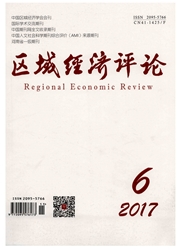

 中文摘要:
中文摘要:
采用2012年流动人口动态监测数据,研究城市融入(融入意愿和能力)对代际农民工市民化意愿的影响,结果表明:(1)城市融入意愿对农民工市民化意愿的直接促进作用显著,而社会保障、住房、工资、交往人群等融入能力变量间接弱化了农民工市民化意愿,且中高收入阶层的农民工表现更为突出;(2)通过Oaxaca-Blinder分解发现,禀赋差异可解释代际农民工市民化意愿差异的主要部分,且新生代农民工在社会保障、住房、地区融入中机会不平等问题更加突出,这是导致其融入能力滞后于意愿的内在原因。
 英文摘要:
英文摘要:
Based on the data from dynamic monitoring & survey data on the migrant population of China in 2012, this paper analyses intergenerational migrant workers city integration, including willingness and capacity and its effect on willingness to be urban citizens. The results are as follows: (1)Willingness of city integration of intergenerational migrant worker has direct effect on urbanization, but social security, housing, wage, social networking weaken the effect. (2)By using the method of Oaxaca-Blinder decomposition, this paper shows that endowment difference explains most difference of willingness to be urban citizens for intergenerational migrant works, while the new generation of migrant worker faces unfair opportunities, such as social security,housing, wage, regions immigration, which leads to integrational capacity lagging behind integrational willingness.
 同期刊论文项目
同期刊论文项目
 同项目期刊论文
同项目期刊论文
 期刊信息
期刊信息
